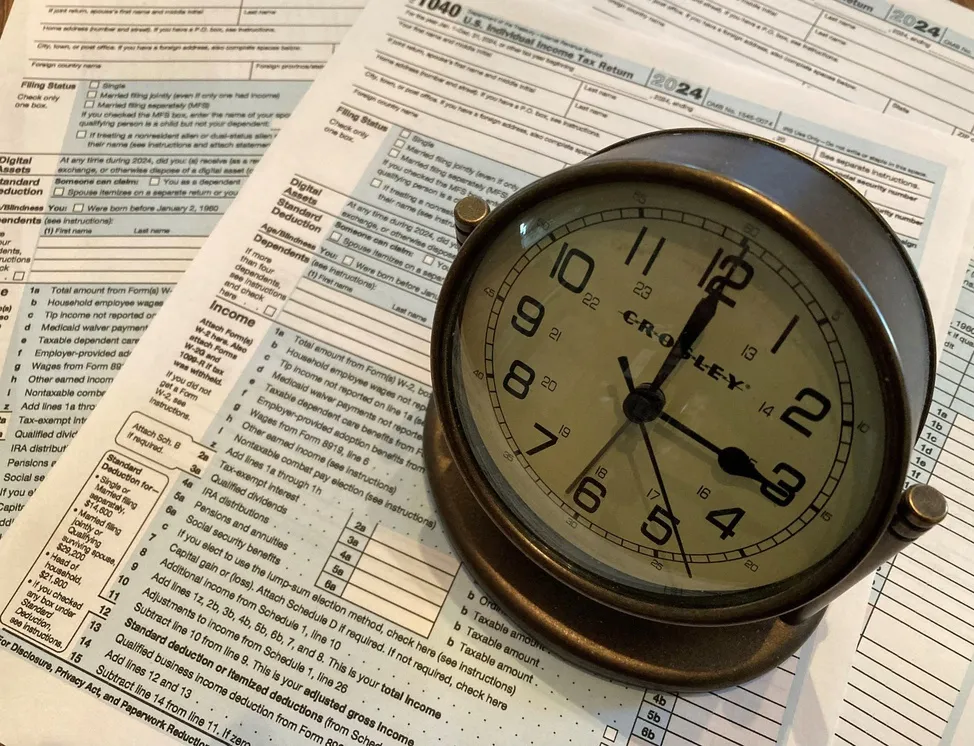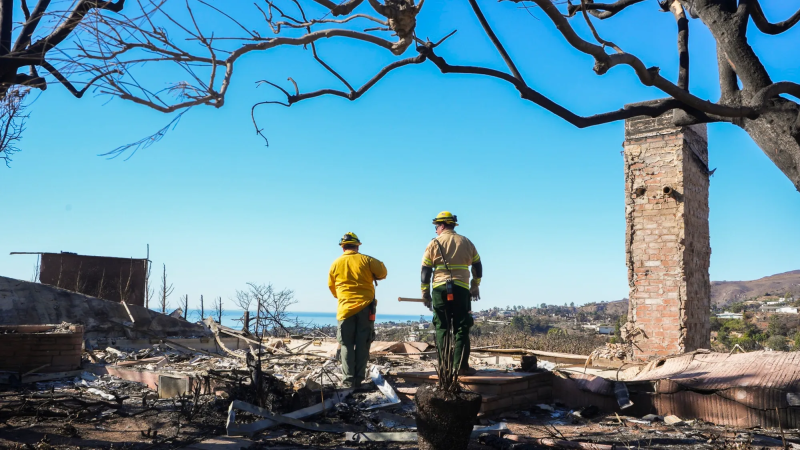
Americans affected by California wildfire get IRS tax relief. Here's what that means.
Individuals and businesses affected by the ravaging wildfires in southern California will receive tax relief, the IRS said.
For those who live or own a business in Los Angeles County, or the area designated by the Federal Emergency Management Agency (FEMA), any filings or payments due from Jan. 7, the day the wildfires began, are automatically extended to Oct. 15, the agency said. If the federal government expands the disaster area to any other counties, those residents and business owners will receive the same relief. The most updated list of eligible localities is on the IRS’ tax relief in disaster situations web page.
“Basically, when a disaster is declared, federal activity is frozen,” said Miklos Ringbauer, a certified public accountant (CPA) in Los Angeles. "That means income tax payment, retirement contributions, etcetera are postponed for taxpayers who reside in the area, and penalties and interest aren’t added.”
Do I need to apply for tax relief?
Depending on your circumstances, you may or may not have to contact the IRS. Here’s a breakdown:
- If your address on record with the IRS is in the disaster zone, tax relief is automatically applied and these taxpayers don’t have to contact the agency, the IRS said.
- If you’re affected but don’t have an IRS address of record located in the disaster area, for example, because you moved to the disaster area after filing your last return, you could receive a late filing or late payment penalty notice from the IRS for the postponement period. If that happens, call the number on the notice to have the penalty abated, the IRS said.
- If you don’t live in the disaster zone but have records necessary to meet a deadline during the postponement period located in the affected area, you should call the IRS at 866-562-5227.
- If you don’t live in the disaster area, but your tax preparer is affected, you may get an extension. “It’s not automatic, but the CPA can reach out to the IRS and ask for help for the client to avoid penalties and late fees,” he said. “Because of Covid, this is a more prevalent situation because people moved around."

What's extended to Oct. 15?
Some examples for individuals and businesses, according to the IRS, include:
- Individual income tax returns and payments normally due on April 15.
- 2024 contributions to IRAs and health savings accounts for eligible taxpayers.
- 2024 quarterly estimated income tax payments normally due on Jan. 15, and estimated tax payments normally due on April 15, June 16 and Sept. 15.
- Quarterly payroll and excise tax returns normally due on Jan. 31, April 30 and July 31.
- Calendar-year partnership and S corporation returns normally due on March 17.
- Calendar-year corporation and fiduciary returns and payments normally due on April 15.
- Calendar-year tax-exempt organization returns normally due on May 15.
For businesses, the IRS said penalties for failing to make payroll and excise tax deposits due on or after Jan. 7 and before Jan. 22, will be abated as long as the deposits are made by Jan. 22.
Wildfire coverage:Wildfire weary Los Angeles residents face 'last really windy day': Live updates
Tax Day's coming!:When is Tax Day 2025? All about deductions, income brackets, credits and deadlines
Other types of available tax relief
In addition to extensions, taxpayers are entitled to other types of relief, including:
- Individuals and businesses in the disaster area who suffered uninsured or unreimbursed disaster-related losses can choose to claim them on either` the tax year 2025 return or the prior year’s return via an amended return.
- Disaster assistance isn’t included as income on your taxes. That includes housing assistance, transportation or food from charity or friends or aid agencies, Ringbauer said. “It’s a nontaxable event,” he said.
- Taxpayers may be eligible to take a special disaster distribution from a retirement fund without being subject to the additional 10% early distribution tax and that allows the taxpayer to spread the income over three years, the IRS said. Taxpayers may also be eligible to make a hardship withdrawal.

Where to find help?
When you’re safe and ready to start picking up the pieces of your financial life, you’ll likely need to reconstruct your finances for loans, mortgages or taxes, Ringbauer said. Some places to start, he said, include:
- Your adviser may have your records on file.
- The IRS, between the end of June to August, will have your wage income information in its system from copies that are reported to the IRS. “You can request an IRS transcript, and all of this should be accessible,” Ringbauer said.
Supporters of disaster relief
People who come to support and help local residents and businesses in a disaster zone may also qualify for filings and payments extensions, Ringbauer said.
People who donate money or goods need to make sure their charity organizations are legitimate to receive a tax deduction, he said.
Medora Lee is a money, markets, and personal finance reporter at USA TODAY. You can reach her at [email protected] and subscribe to our free Daily Money newsletter for personal finance tips and business news every Monday through Friday morning.

